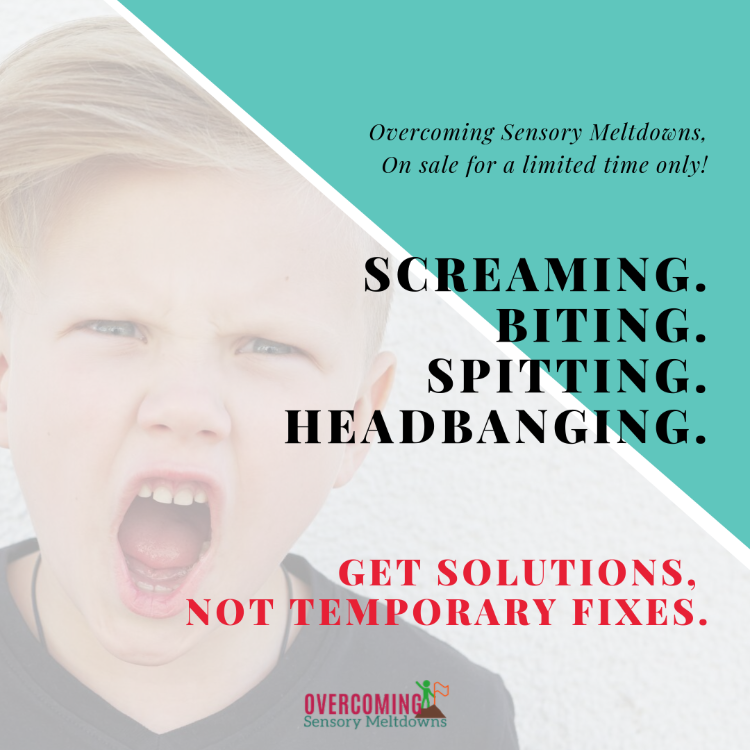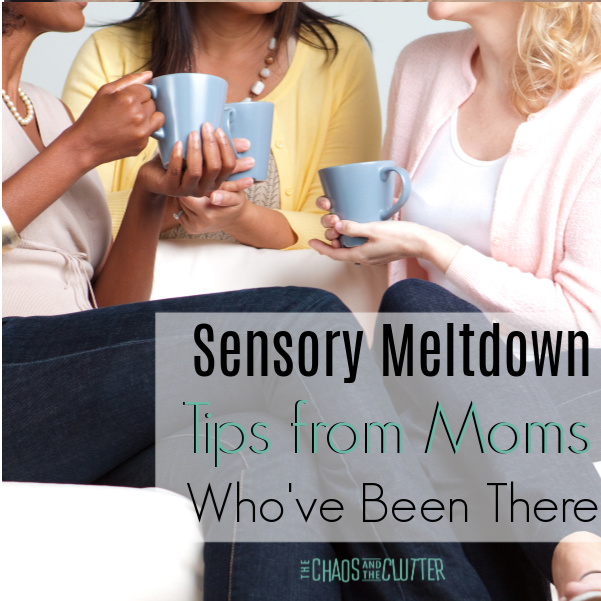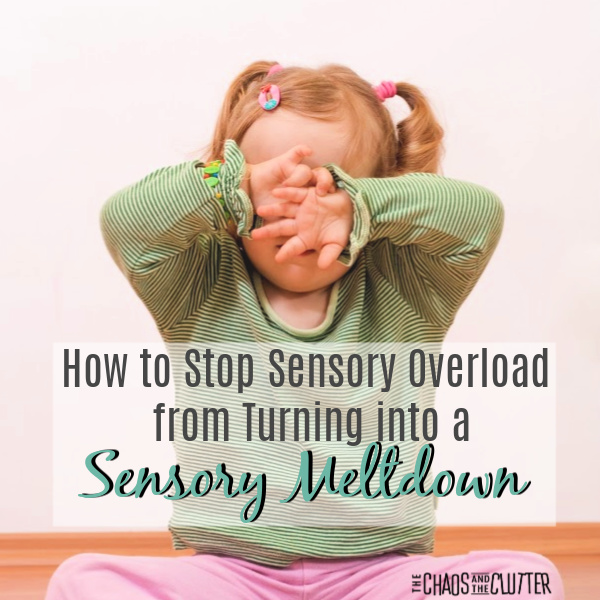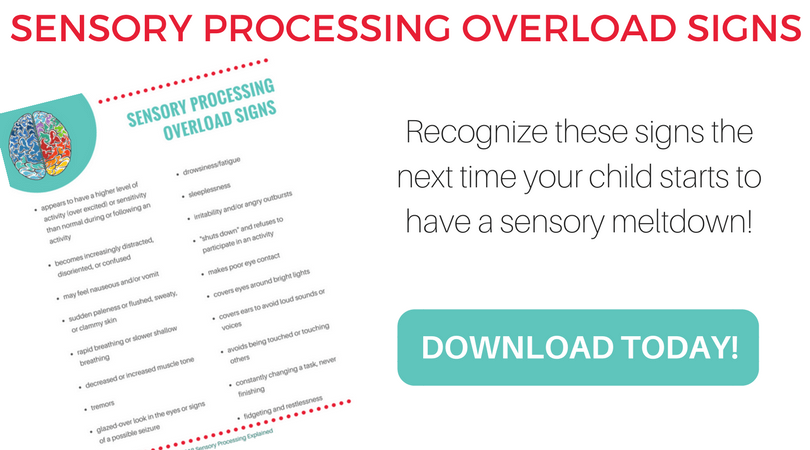 If you’re a parent or teacher who has experienced a sensory meltdown, you know that there is no fun to be had there. It’s upsetting for the child, for the adult present, and awkward and uncomfortable for anyone within a one mile radius! While I have my own tried and true strategies for helping my kids through these, I know that one size does not fit all, so I wanted to gather sensory meltdown tips from other moms who’ve been there.
If you’re a parent or teacher who has experienced a sensory meltdown, you know that there is no fun to be had there. It’s upsetting for the child, for the adult present, and awkward and uncomfortable for anyone within a one mile radius! While I have my own tried and true strategies for helping my kids through these, I know that one size does not fit all, so I wanted to gather sensory meltdown tips from other moms who’ve been there.
I know that their words are going to help you. Not only will you gather more tools for yourself by learning what works for them, you will be able to know without a doubt that you are not alone. I know that you will hear yourself in some of what they say.
 If you’re new to the term “sensory meltdown”, I encourage you to take a few minutes and read about the difference between a tantrum and a sensory meltdown. You can also read about meltdown prevention and strategies that really help. (just click that link above or the photo below)
If you’re new to the term “sensory meltdown”, I encourage you to take a few minutes and read about the difference between a tantrum and a sensory meltdown. You can also read about meltdown prevention and strategies that really help. (just click that link above or the photo below)
Sensory Meltdown Tips from Moms Who’ve Been There:
“Stay calm yourself, as hard as that may be.” ~ Dyan from And Next Comes L
“Stop talking! As parents it’s our instinct to comfort our child and say “it’s okay” or ask what they need, but every word you say during a meltdown is just more sensory input your child’s brain needs to decode.” ~ Kaylene from Autistic Mama
“If you can start documenting the meltdowns, do it. Even something as simple as a journal to mark down things like possible triggers, time of day, location, etc. The more you can keep track, the better. Then you might be able to determine possible causes and figure out the most appropriate solutions.” ~ Kori from Kori at Home
You can find a sensory trigger log to help you document in the More Calm in the Chaos Planner for Moms.
“We try to leave the situation and I hold him tightly in a hug (if he will let me). I’ve learned that getting mad or raising my voice never helps. So I try to talk calmly and use words like “I understand you feel overwhelmed…” ” ~ Angela from Teaching Mama
“Counteract negative sensory input with positive sensory input. By doing so it’s easier to bring the child back to the present and move forward. We do this by making sure we have sensory kits ready at home or on the go. Once the child is calm and brought back to the present moment we can communicate feelings appropriately and come up with a solution together to solve the initial sensory issue.” ~ Renae from Every Star is Different
“Doctor recommended lollipops for grocery store trips. Taste, smell and texture helped my boys stay calm long enough to do quick shopping. Oldest son is autistic and seemingly constantly was in a state of meltdown. I was a single mom. Kids went everywhere with me. Lollipops helped.” ~ Samantha M.
More Sensory Meltdown Tips by Moms with Experience:
“We always have a box of sensory stuff in our car as well as I have a big purse that I throw a few things in for any outing. Her ear muffs, chewy necklace, snack( usually a cracker of some sort) and a spill proof water bottle. She does horrible in crowds and will chew her fingers raw if we don’t have her chewy necklace and with the ear muffs we have cut our meltdowns in half because she isn’t overwhelmed by the noises but still can hear somewhat.” ~ Ari C.
“I always have earplugs in my bag for unexpected noise. We have invested in a swing ( daughter is 12 and swing takes up to 30stone in weight so will last) Swinging helps a lot and is calming so we get her on the swing. A rocking chair I picked up from the charity shop is good too.” ~ Samantha T.
“My son loves the brushing and joint compressions still at 14. He gets so relaxed and calm. If we venture out to eat, and it gets to be overwhelming, I can do his joints in his fingers and he loves it.” ~ Jill L.
“During meltdowns, we rock together and I will also tap on his head. Learned that one from a chiropractor.” ~ Michelle W.
“It’s absolutely about prevention. Once a child is in a meltdown, their brains cannot think things through as they normally would. Recognize, avoid, accommodate.” ~ Amanda W.

You can also read helpful tips on how to stop sensory overload from turning into a sensory meltdown, as I know that is a common issue for parents.

Being able to recognize the signs of sensory overload can help you to take action before it turns into a full blown sensory meltdown. My friend Heather and I created a free cheatsheet to help you see the signs. Read more about the signs of sensory overload here or get your own copy of the cheatsheet to print off and keep as a reminder here. 
